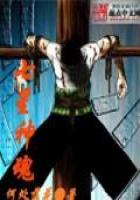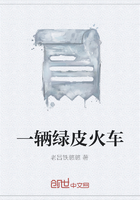There was something in her voice, usually so soft and pleasant, as she spoke these words, something of steeliness and defiance that caused Alan to feel at once happy and uncomfortable. Apparently also it caused Aylward to feel angry, for he flashed a glance at Alan over her head of which the purport could not be mistaken, though his pale face remained as immovable as ever. "We are enemies. I hate you," said that glance. Probably Barbara saw it; at any rate before either of them could speak again, she said:
"Thank goodness, there is dinner at last. Sir Robert, will you take me in, and, Alan, will you sit on the other side of me? My uncle will show the rest their places."
The meal was long and magnificent; the price of each dish of it would have kept a poor family for a month, and on the cost of the exquisite wines they might have lived for a year or two. Also the last were well patronized by everyone except Barbara, who drank water, and Alan, who since his severe fever took nothing but weak whiskey and soda and a little claret. Even Aylward, a temperate person, absorbed a good deal of champagne. As a consequence the conversation grew animated, and under cover of it, while Sir Robert was arguing with his neighbour on the left, Barbara asked in a low voice:
"What is the row, Alan? Tell me, I can't wait any longer."
"I have quarrelled with them," he answered, staring at his mutton as though he were criticizing it. "I mean, I have left the firm and have nothing more to do with the business."
Barbara's eyes lit up as she whispered back:
"Glad of it. Best news I have heard for many a day. But then, may I ask why you are here?"
"I came to see you," he replied humbly--"thought perhaps you wouldn't mind," and in his confusion he let his knife fall into the mutton, whence it rebounded, staining his shirt front.
Barbara laughed, that happy, delightful little laugh of hers, presumably at the accident with the knife. Whether or no she "minded" did not appear, only she handed her handkerchief, a costly, last- fringed trifle, to Alan to wipe the gravy off his shirt, which he took thinking it was a napkin, and as she did so, touched his hand with a little caressing movement of her fingers. Whether this was done by chance or on purpose did not appear either. At least it made Alan feel extremely happy. Also when he discovered what it was, he kept that gravy-stained handkerchief, nor did she ever ask for it back again.
Only once in after days when she happened to come across it stuffed away in the corner of a despatch-box, she blushed all over, and said that she had no idea that any man could be so foolish out of a book.
"Now that /you/ are really clear of it, I am going for them," she said presently when the wiping process was finished. "I have only restrained myself for your sake," and leaning back in her chair she stared at the ceiling, lost in meditation.
Presently there came one of those silences which will fall upon dinner-parties at times, however excellent and plentiful the champagne.
"Sir Robert Aylward," said Barbara in that clear, carrying voice of hers, "will you, as an expert, instruct a very ignorant person? I want a little information."
"Miss Champers," he answered, "am I not always at your service?" and all listened to hear upon what point their hostess desired to be enlightened.
"Sir Robert," she went on calmly, "everyone here is, I believe, what is called a financier, that is except myself and Major Vernon, who only tries to be and will, I am sure, fail, since Nature made him something else, a soldier and--what else did Nature make you, Alan?"
As he vouchsafed no answer to question, although Sir Robert muttered an uncomplimentary one between his lips which Barbara heard, or read, she continued:
"And you are all very rich and successful, are you not, and are going to be much richer and much more successful--next week. Now what I want to ask you is--how is it done?"
"Accepting the premises for the sake of argument, Miss Champers," replied Sir Robert, who felt that he could not refuse the challenge, "the answer is that it is done by finance."
"I am still in the dark," she said. "Finance, as I have heard of it, means floating companies, and companies are floated to earn money for those who invest in them. Now this afternoon as I was dull, I got hold of a book called the Directory of Directors, and looked up all your names in it, except those of the gentlemen from Paris, and the companies that you direct--I found out about those in another book.
Well, I could not make out that any of these companies have ever earned any money, a dividend, don't you call it? Therefore how do you all grow so rich, and why do people invest in them?"
Now Sir Robert frowned, Alan coloured, two or three of the company laughed outright, and one of the French gentlemen who understood English and had already drunk as much as was good for him, remarked loudly to his neighbour, "Ah! she is charming. She do touch the spot, like that ointment you give me to-day. How do we grow rich and why do the people invest? /Mon Dieu!/ why do they invest? That is the great mystery. I say that /cette belle demoiselle, votre nièce, est ravissante. Elle a d'esprit, mon ami Haswell./"
Apparently her uncle did not share these sentiments, for he turned as red as any turkey-cock, and said across the great round table:
"My dear Barbara, I wish that you would leave matters which you do not understand alone. We are here to dine, not to talk about finance."
"Certainly, Uncle," she answered sweetly. "I stand, or rather sit, reproved. I suppose that I have put my foot into it as usual, and the worst of it is," she added, turning to Sir Robert, "that I am just as ignorant as I was before."
"If you want to master these matters, Miss Champers," said Aylward with a rather forced laugh, "you must go into training and worship at the shrine of"--he meant to say Mammon, then thinking that the word sounded unpleasant, substituted--"the Yellow God as we do."















